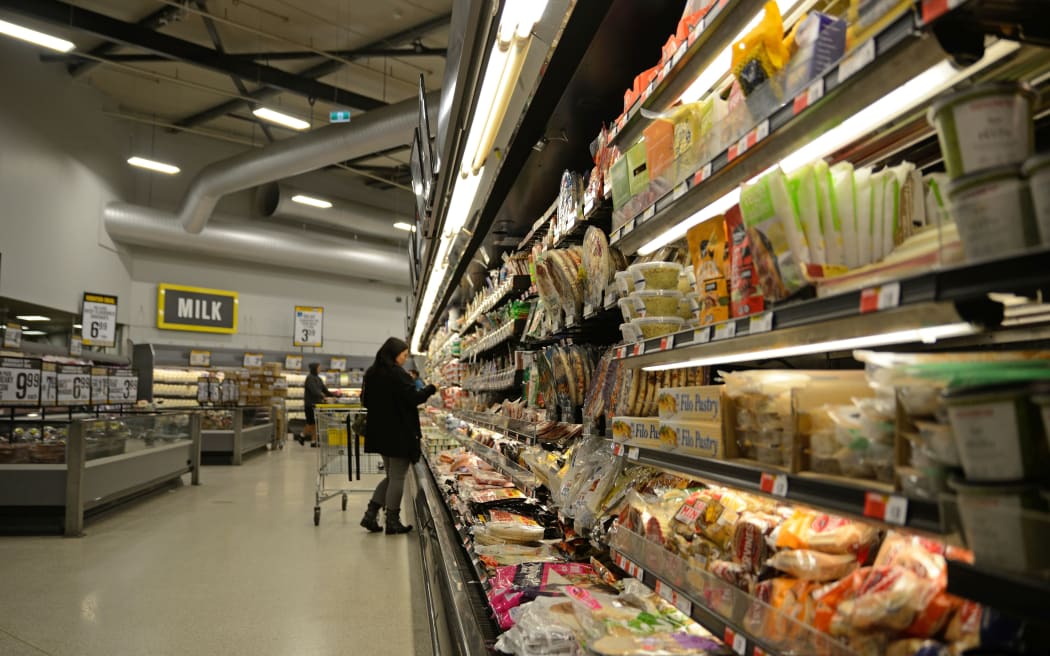Business
Supermarkets See Small Drop in Food Prices, Cabbage Costs Skyrocket

Supermarket shoppers in New Zealand may find a slight reprieve as food prices dipped by 0.4 percent in September 2023 compared to the previous month. Data released by Stats NZ indicates a notable decline in the prices of various food items, particularly vegetables and chocolates. Boxed chocolates saw a dramatic price drop of 16.2 percent, while cucumbers experienced a staggering decrease of 34 percent.
Despite this month’s positive trend, food prices rose 4.1 percent year-on-year, marking the smallest annual increase since April. Key staples such as milk and cheese continued to rise, with milk prices increasing by 15 percent and cheese by 31.4 percent over the past year. Beef mince also rose by 17.7 percent.
According to Nicola Growden, spokesperson for prices and deflators, “All five food groups continue to grow annually, but the rate of increase for overall food prices has slowed this month.” She highlighted that the price of white bread has surged by 69 cents per loaf since December 2022. In a surprising twist, cabbage prices skyrocketed by 97 percent compared to the previous year, reaching their highest level in nearly three years. The cost of lettuce has also exceeded 50 percent year-over-year.
Foodstuffs managing director Chris Quin welcomed the easing in food price inflation but noted persistent underlying cost pressures across many categories. “While global costs have started to moderate in some areas, what our co-ops pay for the grocery items New Zealand produces and exports remain elevated—especially dairy and red meat,” he stated. He pointed out that butter remains 27 percent more expensive compared to last year, and many shoppers are opting for home-brand products to manage their budgets.
Sales of Pams products have risen by 4.7 percent annually over the past two years, reflecting this shift in consumer behavior. Quin emphasized the seasonal opportunities for savings, stating, “Fortunately, spring is now here, and prices have started to ease after a slow start.” He mentioned that recent weather conditions have affected the growth of seasonal produce, such as asparagus and berries, but prices for tomatoes and avocados are beginning to decrease.
In addition, Quin noted that global reductions in olive oil prices are starting to be reflected on supermarket shelves. He explained, “It can take three months or more for changes in commodity prices for products like olive oil to be reflected in what shoppers see here, factoring in production, shipping, and existing stock.”
Looking ahead, Quin expressed optimism for the upcoming spring season, stating, “We haven’t had any major weather events lately, but it’s a crucial time for tree crops like apricots and cherries. Over the next six weeks, we’ll get a clearer picture of what the summer season will look like.” He acknowledged that the economic shocks of the past five years have significantly altered customer behavior, leading to increased competition among co-ops to offer the best deals.
As New Zealanders continue to navigate their grocery budgets, it is clear that the landscape of food pricing remains complex, with fluctuations driven by both local and global market conditions.
-

 World3 months ago
World3 months agoTest Your Knowledge: Take the Herald’s Afternoon Quiz Today
-

 Sports3 months ago
Sports3 months agoPM Faces Backlash from Fans During Netball Trophy Ceremony
-

 Lifestyle3 months ago
Lifestyle3 months agoDunedin Designers Win Top Award at Hokonui Fashion Event
-

 Sports3 months ago
Sports3 months agoLiam Lawson Launches New Era for Racing Bulls with Strong Start
-

 Lifestyle3 months ago
Lifestyle3 months agoDisney Fan Reveals Dress Code Tips for Park Visitors
-

 Health3 months ago
Health3 months agoWalking Faster Offers Major Health Benefits for Older Adults
-

 World3 months ago
World3 months agoCoalition Forms to Preserve Māori Wards in Hawke’s Bay
-

 Politics3 months ago
Politics3 months agoScots Rally with Humor and Music to Protest Trump’s Visit
-

 Top Stories3 months ago
Top Stories3 months agoUK and India Finalize Trade Deal to Boost Economic Ties
-

 World3 months ago
World3 months agoHuntly Begins Water Pipe Flushing to Resolve Brown Water Issue
-

 Entertainment3 months ago
Entertainment3 months agoExperience the Excitement of ‘Chief of War’ in Oʻahu
-

 Science3 months ago
Science3 months agoNew Interactive Map Reveals Wairarapa Valley’s Geological Secrets









